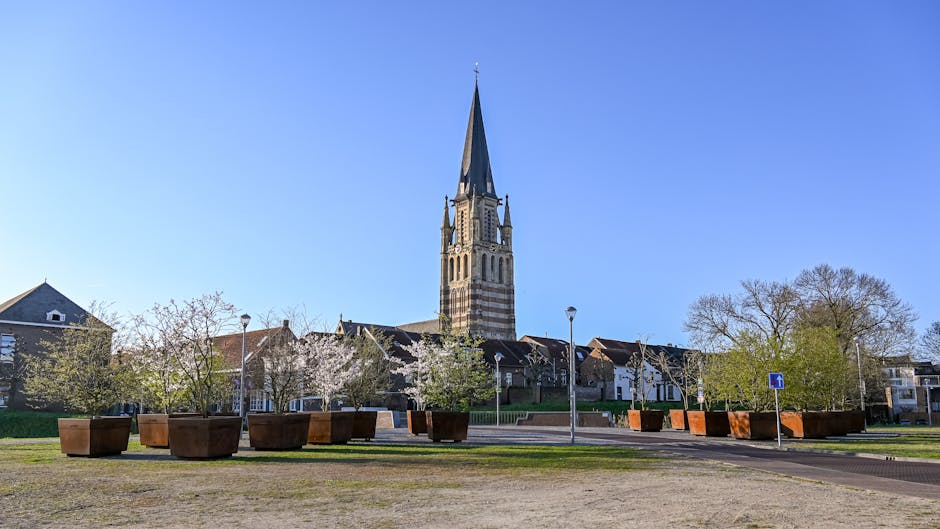Finding Your Faith Community
What does it mean to find your faith community? Is it about belonging to a group of like-minded individuals who share your beliefs? Or is it about discovering a place where you feel connected, supported, and spiritually nourished? The quest to find your faith community is a deeply personal journey that can have a profound impact on your life. In this article, we will explore the importance of finding a faith community, the benefits it can offer, and how to go about discovering your own spiritual tribe. So, let’s dive in and explore the world of faith communities together.
The Importance of Finding Your Faith Community

Faith communities play a crucial role in the lives of many individuals. They provide a sense of belonging, support, and guidance that can be invaluable in times of need. Being part of a faith community can help you connect with others who share your beliefs and values, creating a sense of community and solidarity. It can also offer opportunities for spiritual growth, learning, and personal development. In a world that can often feel disconnected and chaotic, finding a faith community can provide a sense of stability, purpose, and meaning.
Research has shown that being part of a faith community can have numerous benefits for both mental and physical health. Studies have found that people who are actively involved in a faith community tend to have lower levels of stress, anxiety, and depression. They also report higher levels of life satisfaction, happiness, and overall well-being. This is because faith communities can provide a sense of social support, a place to turn to in times of need, and a community of like-minded individuals who can offer encouragement and comfort.
How to Find Your Faith Community

So, how do you go about finding your faith community? The process can be different for everyone, but there are some common steps you can take to help you on your journey. Here are a few tips to consider:
1. Reflect on Your Beliefs and Values
Before you can find your faith community, it’s important to take some time to reflect on your own beliefs and values. What do you believe in? What are your core values? What are you looking for in a faith community? By taking the time to answer these questions, you can better understand what you are looking for in a spiritual community and what will be the best fit for you.
2. Explore Different Faith Traditions
Don’t be afraid to explore different faith traditions and denominations. You may find that you are drawn to a particular tradition or that you feel a strong connection to a specific set of beliefs. Attend services, participate in religious events, and talk to members of different faith communities to get a sense of what resonates with you.
3. Attend Services and Events
One of the best ways to find your faith community is to attend services and events. This will give you the opportunity to meet people, experience the community firsthand, and see if it feels like a good fit for you. Pay attention to how you feel when you are in the community do you feel welcomed, supported, and at home?
4. Get Involved
Once you have found a faith community that resonates with you, consider getting more involved. Join a small group, volunteer for a service project, or participate in a study group. This will help you deepen your connections with others in the community and become more integrated into the fabric of the community.
The Benefits of Being Part of a Faith Community

Being part of a faith community can offer a wide range of benefits that can enhance all areas of your life. Here are some of the key benefits of finding your faith community:
1. Social Support
One of the biggest benefits of being part of a faith community is the social support it can provide. Having a community of like-minded individuals who share your beliefs and values can offer a sense of belonging, connection, and camaraderie. This can be especially important during times of crisis, loss, or uncertainty, when having a supportive community to turn to can make all the difference.
2. Spiritual Growth
Being part of a faith community can also help you grow spiritually. By participating in religious services, attending study groups, and engaging in spiritual practices, you can deepen your understanding of your faith and strengthen your connection to the divine. This can lead to a greater sense of purpose, meaning, and fulfillment in your life.
3. Personal Development
Being part of a faith community can also help you grow personally. By engaging with others in the community, participating in service projects, and working towards common goals, you can develop important skills such as communication, leadership, and teamwork. This can help you become a more well-rounded and resilient individual.
4. Emotional Well-Being
Research has shown that being part of a faith community can have a positive impact on your emotional well-being. People who are actively involved in a faith community tend to have lower levels of stress, anxiety, and depression. They also report higher levels of life satisfaction, happiness, and overall well-being. This is because faith communities can provide a sense of social support, a place to turn to in times of need, and a community of like-minded individuals who can offer encouragement and comfort.
Common Misconceptions About Faith Communities

There are many misconceptions about faith communities that can prevent people from seeking out their own spiritual tribe. Let’s explore some of the common misconceptions and set the record straight:
1. Faith Communities Are Exclusive
One common misconception about faith communities is that they are exclusive and only welcome certain types of people. In reality, most faith communities are open and welcoming to anyone who is interested in learning more about their beliefs and practices. They are often eager to share their traditions with others and invite newcomers to join their community.
2. Faith Communities Are Judgmental
Another common misconception is that faith communities are judgmental and critical of others who do not share their beliefs. While it’s true that some faith communities can be judgmental, the majority are accepting and tolerant of different viewpoints. They understand that people come from diverse backgrounds and have different perspectives, and they strive to create a welcoming and inclusive environment for all.
Conclusion
Finding your faith community is a deeply personal journey that can have a profound impact on your life. By connecting with like-minded individuals who share your beliefs and values, you can find a sense of belonging, support, and spiritual nourishment that can enhance all areas of your life. Whether you are searching for social support, spiritual growth, personal development, or emotional well-being, being part of a faith community can offer a wide range of benefits that can help you thrive.
So, as you embark on your journey to find your faith community, remember to reflect on your beliefs and values, explore different faith traditions, attend services and events, and get involved in the community. Take the time to find a community that feels like home, where you can grow spiritually, connect with others, and make a positive impact on the world around you. Your faith community is out there waiting for you all you have to do is take the first step and begin your search.




